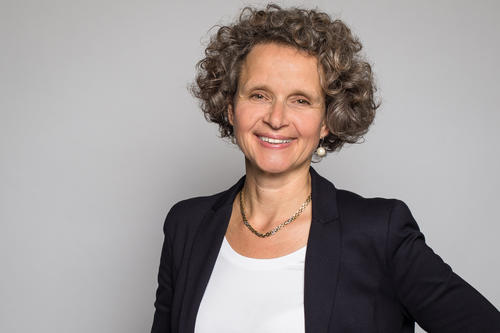“For over two hundred years, emotions have always been crucial for US voters”
Jessica Gienow-Hecht, professor of North American history at the John F. Kennedy Institute of North American Studies
Oct 25, 2024
Jessica Gienow-Hecht, professor of North American history at the John F. Kennedy Institute of North American Studies
Image Credit: Martin Funck
“Do You Have Election Anxiety?” “Twelve Ways to Manage Election Stress” “Election Anxiety on the Rise” – These are the titles of recent American publications. In a survey by the American Psychological Association, 73% of respondents stated that elections cause them to be “anxious.” Among young LGBTQ+ persons, 86% said that their quality of life is affected by this. Psychologists recommend that people who feel this way should exercise more or participate in sports and minimize media consumption – especially just before bedtime.
“Election-xiety” is defined as the anxiety about the process and outcome of elections. Psychologist Erica Komisar says that since many people are increasingly connecting parties or candidates with a certain way of life, these people may have anxiety about losing out. They feel that there will be no place left for them in the USA after November 5th.
The strategies of Kamala Harris and Donald Trump reflect this diagnosis: Harris focuses on abstract positions such as hope, inclusion, nothing too stressful. Trump, in contrast, spins scenarios of doom, revenge, and salvation. Harris wants to be a “president for all Americans,” and Trump wants to be the messiah who will rescue the people from a catastrophe.
Emotions will be crucial in the US elections on November 5th, as they have been for at least the last two hundred years. What has changed, however, is that issues such as unemployment, immigration, abortion, and foreign policy have become straw men that candidates use to transmit their actual message: “I am the right one for you.” In the end, everything will depend on how a few thousand voters in a handful of swing states happen to feel on election day. This is precisely what makes public opinion surveys so questionable, forecasts so uncertain, and fears about the outcome so large.

